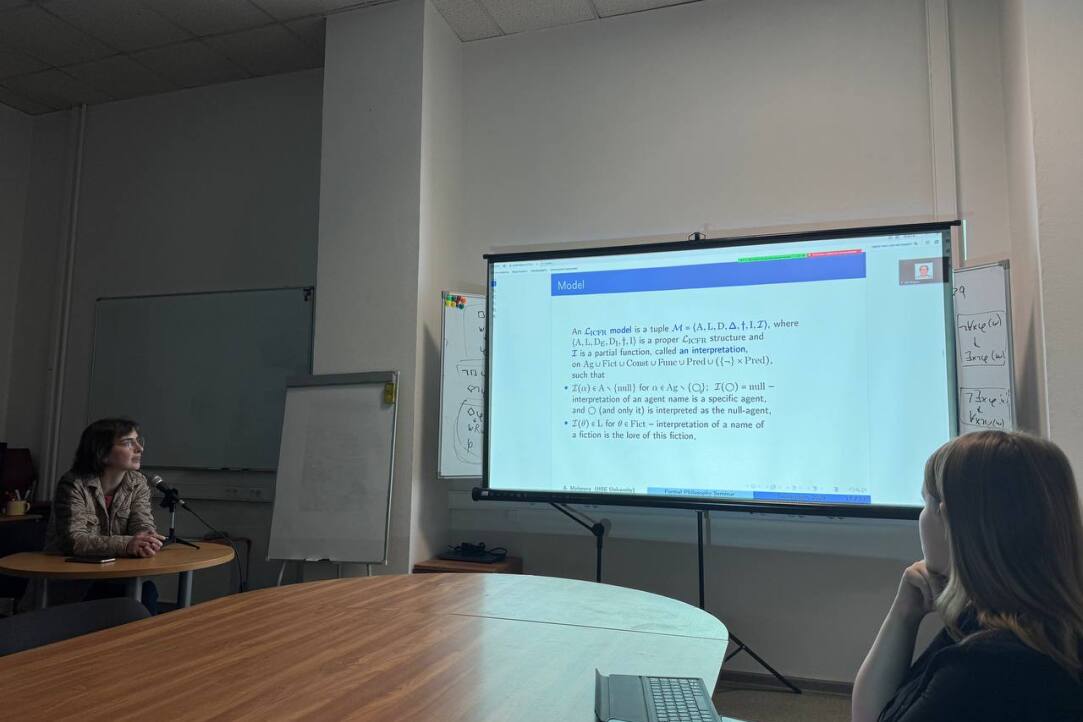
"Formal Philosophy 100": Anna Moiseeva's Presentation
On September 17, the 100th session of the theoretical seminar "Formal Philosophy" took place, during which Anna Moiseeva delivered a presentation titled "Draft of the Intentional Counterparthood F-Reasoning (ICFF) Logic"
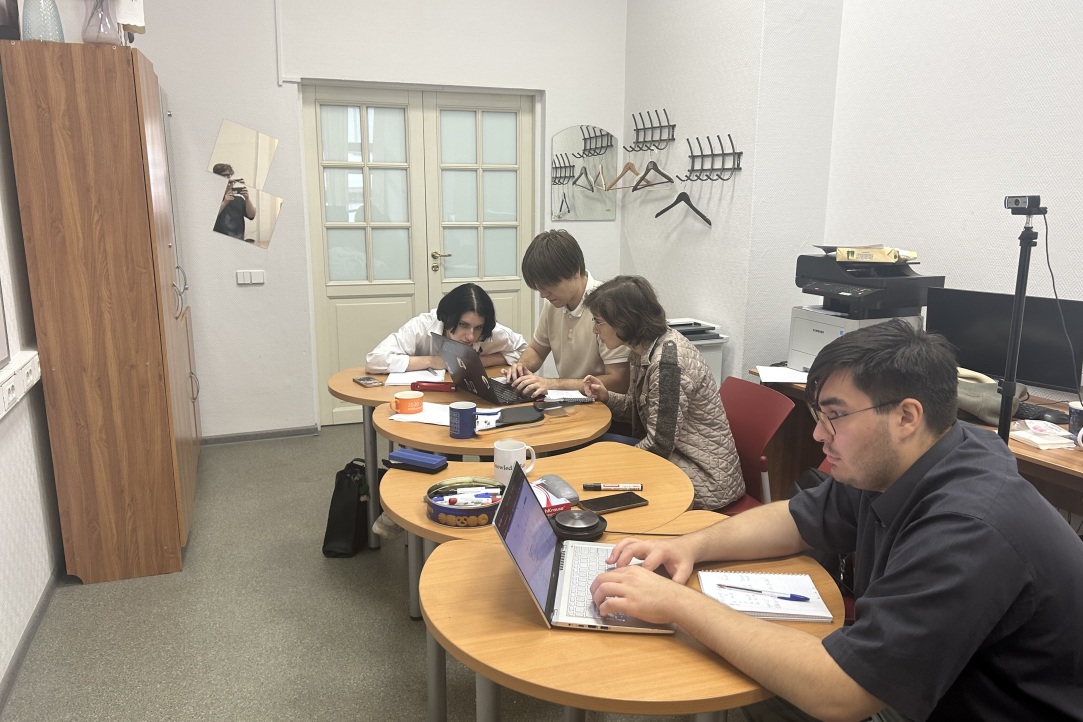
The scientific and educational seminar "Logical Semantics" has started
On September 17, the first scientific and educational seminar "Logical Semantics" of the new semester took place.
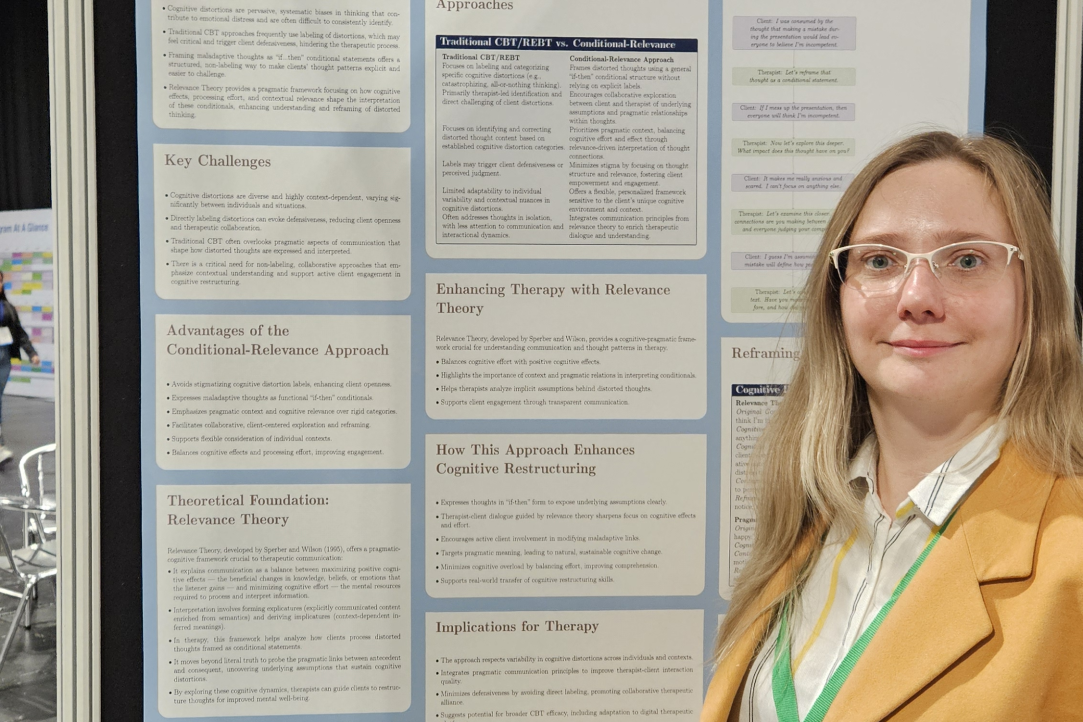
Viktoriia Denisova made a poster presentation at the 55th Congress of the European Association for Behavioural and Cognitive Therapies in Glasgow, United Kingdom.
Viktoriia Denisova, research intern at the Logic, Linguistics, and Formal Philosophy Laboratory, presented her research at the 55th Congress of the European Association for Behavioural and Cognitive Therapies, held from September 3rd to 6th in Glasgow, United Kingdom.
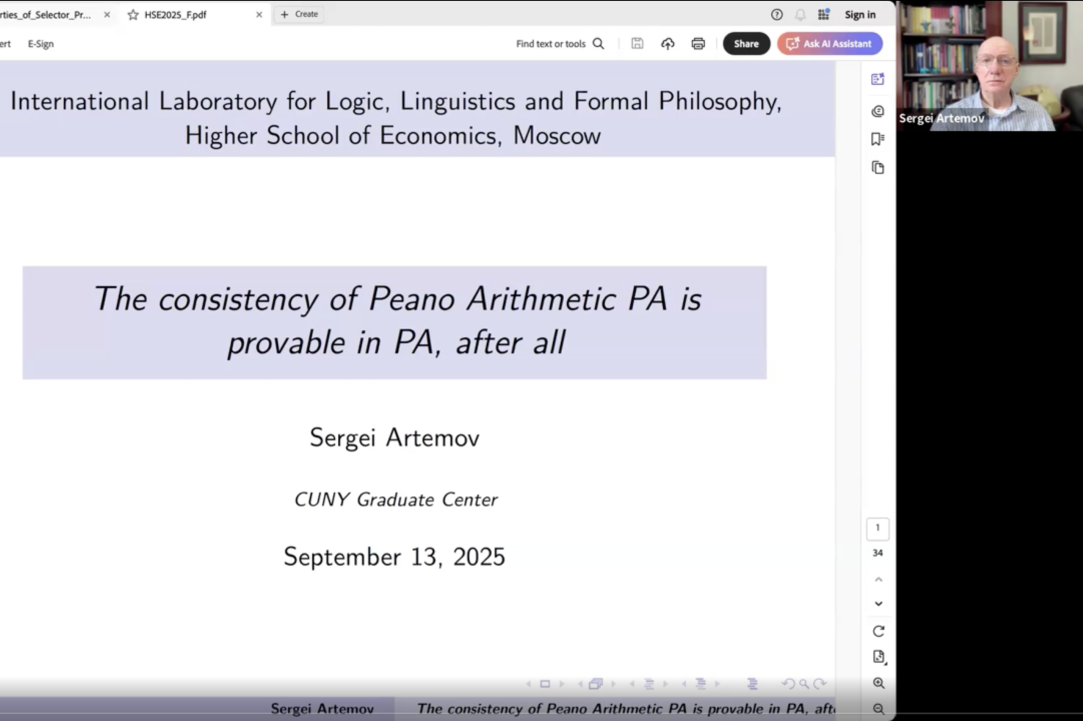
Sergei Artemov's talk "The consistency of Peano Arithmetic PA is provable in PA, after all"
Sergei Artemov, Distinguished Professor at the City University of New York, gave a talk at the seminar "Mathematical Logic and Category Theory," which took place on September 13.
Ramazan Ayupov's talk ''Frege's Philosophy of Language: On the Way to Pragmatics?''
On September 10, the 99th meeting of the theoretical seminar 'Formal Philosophy' took place.
In the journal Epistemology and Philosophy of Science, articles by staff members of the IL LLFP have been published.
The article by Elena Dragalina-Chernaya, "What Is It Like to Be a Logical Alien?" and Denis Maslov's "Metaphysics: From Explication to Conceptual Engineering. A Reply to Pirmin Stekeler-Weithofer."
Arnold Grigoryan's Talk 'Justifying Homotopical Logic Two Ways' at the International Conference 'Logic, Algebra and Truth Degrees' in Siena (Italy)
Research intern of the IL LogLinFP Arnold Grigoryan gave a talk titled 'Justifying Homotopical Logic Two Ways' at the International Conference 'Logic, Algebra and Truth Degrees' (LATD 2025), which was held from July 21 to 25, 2025, in Siena, Italy, bringing together researchers in the fields of mathematical logic, algebra, and their applications.
Articles by Viktoriia Denisova have been published: "Towards a Cognitive Distortion Conditional" and "Cognitive Biases, Distortions and Logical Errors: an Epistemological Analysis"
In the journal Manuscrito (Brazil) and in the journal Humanitarian Studies in Eastern Siberia and the Far East, articles by the research intern of LL LLFP, Viktoriia Denisova, have been published.
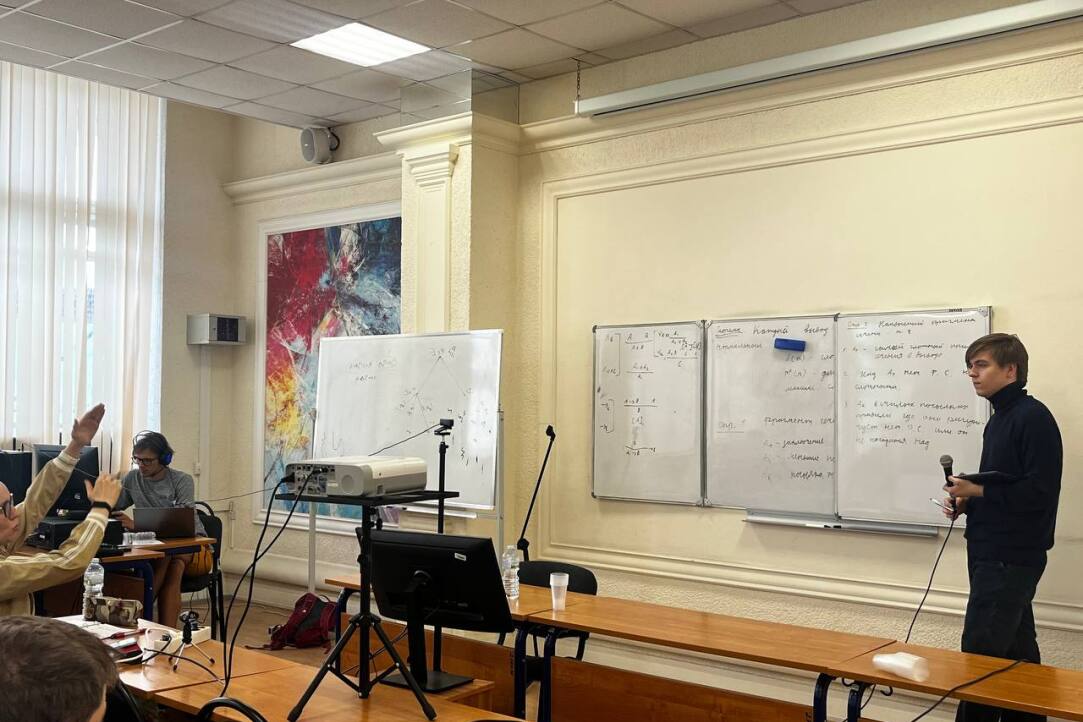
The final day of the summer school
Photo report from the last day of the summer school "Logic, Linguistics and Formal Philosophy 2025"

Professors from the University of Campinas spoke at the conference "Formal Philosophy 2025"
Professors from the University of Campinas "Unicamp" who are part of the Scientific Team of a joint project "Pluralistic Perspectives on Logic and Formal Philosophy" spoke at the conference "Formal Philosophy 2025".
